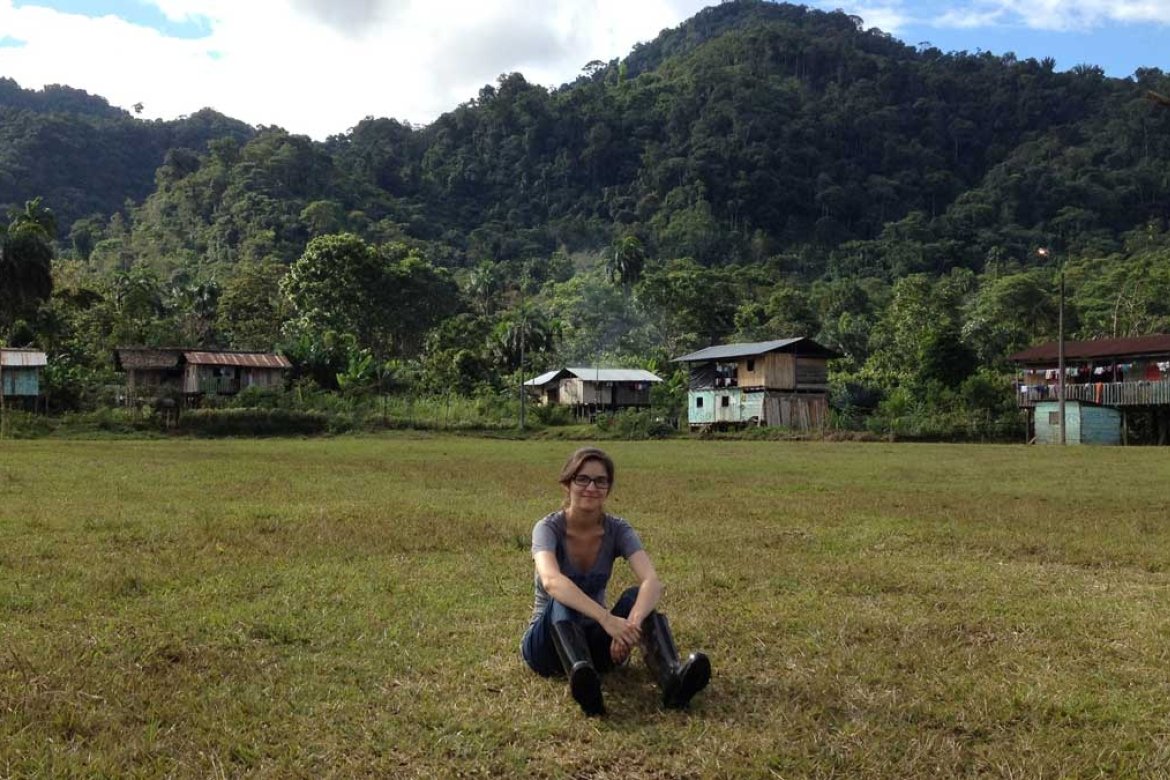The Roots of Community: Ethnobotany in the Ecuadorian Amazon

I learned not only about plants, but also about how indigenous communities are impacted by globalism, tourism and other issues.
Academic focus: Spanish and environmental studies double major, with a five college certificate in culture, health and science
Internship: ethnobotany intern, Runa Foundation, Archidona, Ecuador
Study abroad: School for International Training, Panama: Tropical Ecology
The summer after my first year at Mount Holyoke, I worked at the Runa Foundation in the Amazonian region of Ecuador as an ethnobotany and public health intern. Runa is a nonprofit organization that works with local indigenous people (primarily Kichwa) to promote sustainable community development, both through economic farming endeavors and traditional preservation and promotion.
There was a lot of interest at the time to engage in more research on Amazonian plants and to record ethnobotany practices. In that vein, I worked with two other interns to develop a regional database of present plant species and their uses.
With this knowledge, we were then able to help a local community plan a medicinal garden for retaining, building and sharing local ethnobotanical practices. The vast majority of our work was piloting a long-term project, so a lot of what we were doing was figuring out what we were actually supposed to do! But we managed to get a lot of work done by delegating tasks and performing teamwork.
While I was one of the younger interns and lacked some of the more technical botanical knowledge, I balanced my limited technical skills with a broader public health and environmental understanding that my group members lacked. We traveled all over the region interviewing people in ethnobotanically focused communities and those who had already established medicinal gardens. My Spanish skills were definitely exercised, as I conducted most of the interviews and performed many translations. I also came to better understand the tropics and plant use with a public-health focus — something I really enjoyed since I was undecided about also majoring in environmental studies and working toward a Culture, Health and Science certificate.
Overall, the internship was a fantastic experience. There were definitely hard parts: The bugs were pretty big, and at one point I introduced myself as being 19,000 rather than 19 years old. But more importantly, I learned a lot. I learned not only about plants — in one of the most biodiverse areas of the world — but also about people, and indigenous communities in particular and the ways they’re impacted by issues ranging from globalization (mainly through westernization and colonization) to tourism (eco, volunteer and everything in between) to governmental relations.
I also benefited by being exposed to this knowledge early in my college career. By being in such an immersive setting early on, I was able to more fully integrate the experience gained into my future plans.
Living in the rainforest both broadened my appreciation for how dependent and responsible we are for the earth and for how important is to recognize and respect the different ways we approach its use.